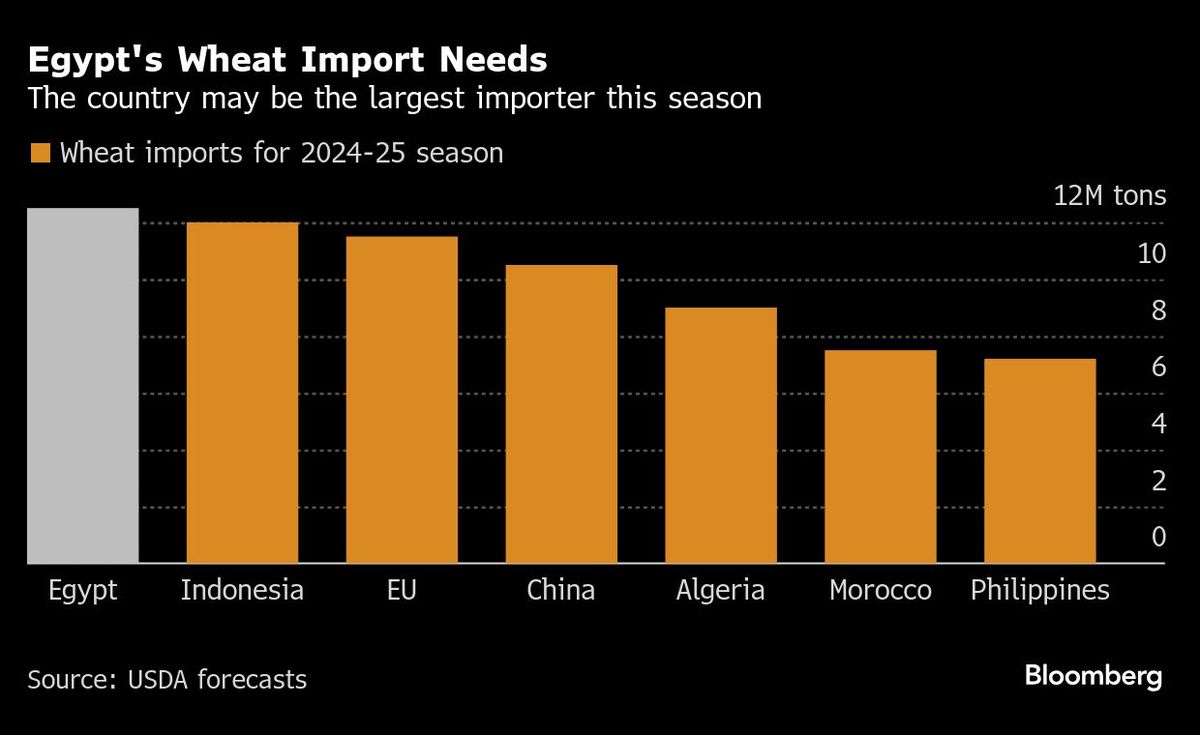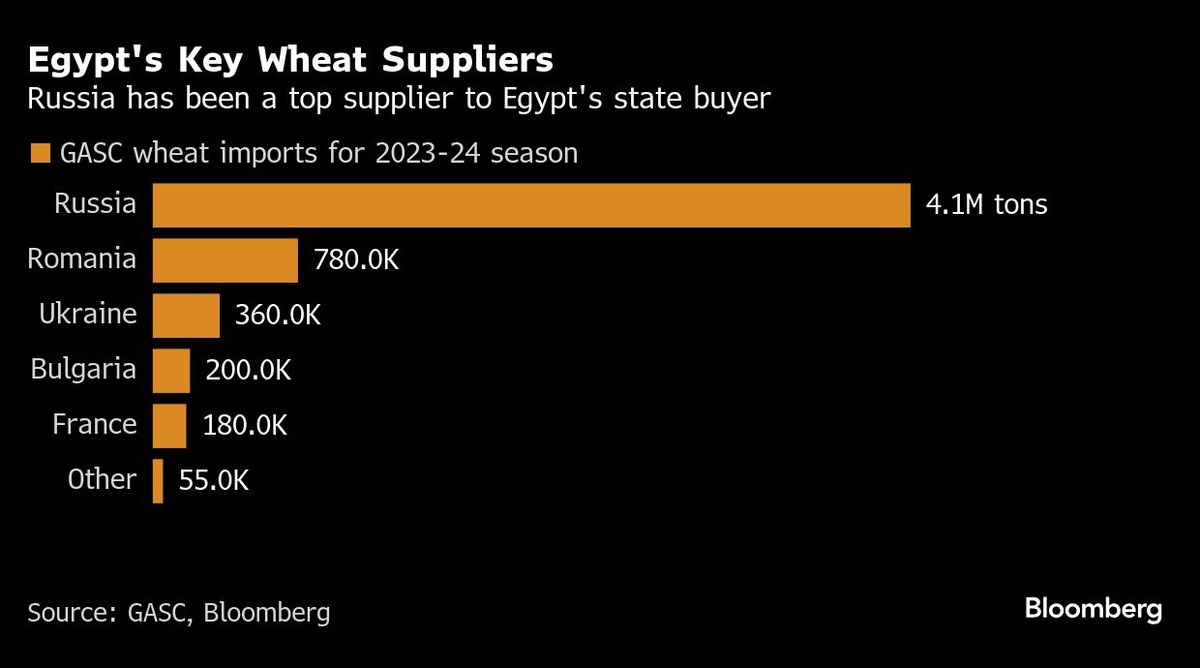Egypt’s wheat revamp clouds insight into key part of world trade

Egypt’s overhaul of the way it buys wheat is making it much harder to follow a key chunk of global grain trade.
As one of the biggest wheat importers, Egypt’s state-issued tenders and direct deals are closely followed by traders to gauge how much exporters, including top shipper Russia, are selling and how competitive their grain is. Those purchases help provide subsidised bread for the population and have typically covered almost half of Egypt’s annual wheat imports.
While Egyptian tenders are held behind closed doors, traders have typically accessed reliable details on offers and sales — providing insight into a sector where physical business is largely conducted in private. But the information has dried up in recent months as Egypt replaced the body responsible for buying. That makes it trickier for merchants to see the volumes, price and origins of the wheat that their rivals are trying to sell to such a crucial buyer.
The last known tender was in early November, an unusually long gap for this time of year, and tracking Egypt’s purchases has become more difficult. The dearth of information and uncertainty over how the new body will book cargoes has left many in the market scratching their heads.

The “info was very useful as an insight into the export market and the competitiveness of various origins,” said CRM AgriCommodities consultant Mike Verdin. It “offered a guide, both through the list of offers as well as the cargoes actually purchased. The loss of this has made the market less transparent, in my view, with info on other tenders less complete and less frequent.”
The General Authority for Supply Commodities oversaw wheat imports until late last year. In tenders, GASC announced final results and traders obtained and shared information about offers and purchases, including the grain’s country of origin, price, which company was selling and cargo sizes. That helped paint a picture of flows, especially from the Black Sea and European region.
In early December, GASC said the role had been taken over by Mostakbal Misr Agency for Sustainable Development, which was established by presidential decree in 2022 but hasn’t been known to import wheat until now.

While Mostakbal Misr has begun booking wheat through direct deals, it hasn’t yet been known to have held a tender, and it’s unclear how often it plans to do so.
Calls to Mostakbal Misr seeking comment went unanswered.
Details in GASC tenders were a “big influence” on market players’ decisions, said Christina Serebriakova, a broker at Atria Brokers. She likened their usefulness to the US government’s global supply and demand reports but said now the “market is having to wait for more clear information.”
Shipping information shared by traders shows 28,000 tonnes of Russian wheat arrived in Egypt for Mostakbal Misr at the end of December. Another 33,000 tonnes of Russian grain were booked in a private deal at the start of the year, according to traders who asked not to be identified.
Black Sea countries have by far been Egypt’s largest suppliers, with Russia last season accounting for about 70% of sales to GASC. Fewer Egyptian tenders would reduce the amount of detail available to the market on how competitive various origins are — at a time when Moscow’s consolidation of its own grain industry also makes it harder for overseas traders to gain insight into flows there.
One question is how Mostakbal Misr will fare securing wheat compared with GASC, which had experience dealing with many companies sourcing grain from multiple countries. An early attempt by the new body in late November to secure cargoes via direct talks was postponed as suppliers asked for more time because sales conditions weren’t clear, Bloomberg reported at the time.
“This new entity is just causing a lot of questions right now,” said Matt Ammermann, a commodity risk manager at StoneX. “I don’t really see a lot of traders fully confident in the new scheme.”
For almost 30 years of expertise in the agri markets, UkrAgroConsult has accumulated an extensive database, which became the basis of the platform AgriSupp.
It is a multi-functional online platform with market intelligence for grains and oilseeds that enables to get access to daily operational information on the Black Sea & Danube markets, analytical reports, historical data.
You are welcome to get a 7-day free demo access!!!
Write to us
Our manager will contact you soon



